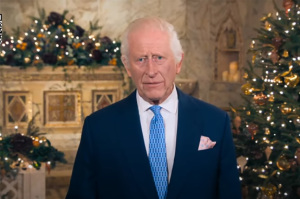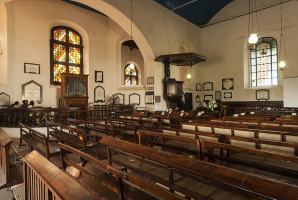Same-sex marriage officially legal in Northern Ireland; Christian leaders express concern

Same-sex marriage is now legal in Northern Ireland, sparking concern among religious and conservative leaders in the Christian-majority country.
As of Jan. 13, same-sex couples are able to register to marry in the country, and those who are already married will have their union recognized by law, according to the BBC.
Those who already have civil partnerships are not able to convert to a marriage.
The move marks the implementation of legislation passed through Westminster last year, which legalized both abortion and gay marriage. The implementation of the legislation brings the province in line with the rest of the United Kingdom, where gay marriage has been legal since 2014.
In July, the U.K. government declared that Northern Ireland’s laws on abortion and gay marriage were out of compliance with human rights regulations, and would have to change if the region’s own government didn’t intervene, The New York Times reported.
The Northern Ireland Office is set to begin a consultation later this year about converting civil partnerships and the role of churches in same-sex marriages. The Protestant population is roughly equal to the Catholic population in the country.
Last week, The Christian Institute expressed concern that the new law “could get in the way of free speech and debate about gay marriage.”
It warned the Northern Ireland Office that it would seek legal action unless citizens receive “clear protections for free speech, written into public order law, just like they were in England and Wales before gay marriage was introduced there.”
Colin Hart, Director of The Christian Institute, said that “when same-sex marriage registration starts on 13 January another set of robust protections will be needed to protect those in Northern Irish society who disagree with same-sex marriage”.
In response, Northern Ireland Secretary Julian Smith stated that “Public Order legislation is being amended to underline that mere criticism of same-sex marriage is not an offense, Irish News reported.
Furthermore, equality law is also being changed, to protect religious bodies and staff from “being sued for declining to take part in a blessing or other event marking a civil same-sex wedding.” Smith also pointed out that religious organizations will be permitted to dismiss a staff member who enters a same-sex marriage if that is incompatible with the organization’s values.
Additionally, with the changes in the law, private legal instruments, such as wills, are not forced to include same-sex marriage where that was not the intention.
In a statement, Simon Calvert, deputy director for Public Affairs at The Christian Institute, said the institute was “grateful that the Secretary of State has recognized the validity of the issues we have raised, and has acted to address each of the areas of concern that we have.”
He stressed the importance of “proper training and guidance for the police, to ensure respect for freedom of speech on these issues.”
“We don’t want people using the police to try to punish those who believe in traditional marriage," he said.
Several churches in Northern Ireland had previously insisted they would only conduct marriages between a man and a woman despite the legal change.
“The Church of Ireland affirms, according to our Lord's teaching, that marriage is in its purpose a union permanent and lifelong, for better or worse, till death do them part, of one man with one woman, to the exclusion of all others on either side," a spokesperson for the Church of Ireland told the Belfast Telegraph.
The Rev. Jim Stothers, deputy clerk of the Presbyterian Church's General Assembly, explained that the church body was committed to maintaining "the scriptural basis of marriage."
"In every marriage service, the minister officiating is required to read this statement: 'Since the beginning of creation God, in His gracious purpose, provided marriage as the accepted way in which a man and a woman may come together as husband and wife,'" he noted.
"This is the only basis on which marriage can take place within the Presbyterian Church in Ireland. The introduction of same-sex marriage in Northern Ireland does not change that conviction."





























